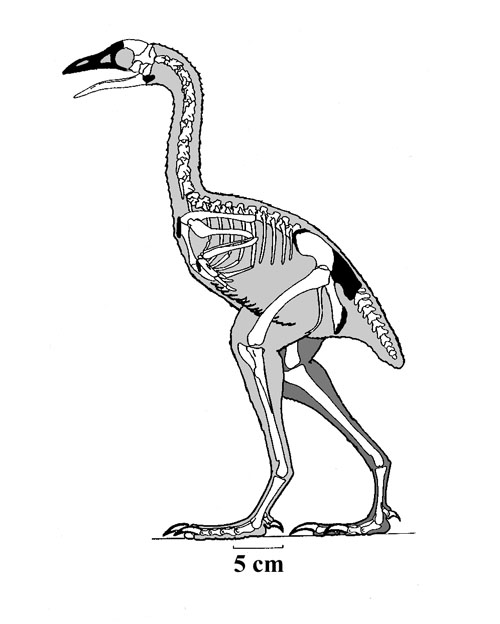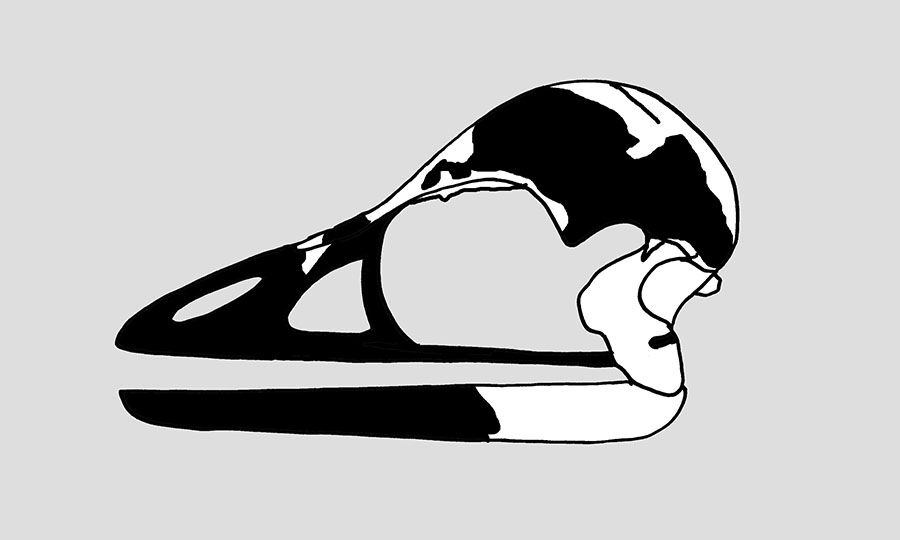
Species: deferrariisi ALVARENGA & BONAPARTE, 1992
Etymology: In homage to Professor Oscar de Ferrariis, Director, Museo de Ciencias
Naturales, Universidad Nacional del Comahue, who was responsible for the
collection of the specimens.
Holotype: MACN-N 03
Locality: 200 m east of the buildings of the Universidad Nacional del Comahue, Northern area of Neuquen City, Neuquen Province, Patagonia, Argentina.
Horizon: Bajo de la Carpa Formation, Lower Rio Colorado Subgroup, Upper Neuquen
Group.
(was Bajo de la Carpa Member, Rio Colorado Formation.)
Biostratigraphy:
Age: Coloradoan Tetrapoda Assemblage, Age: Santonian-Campanian Stage, Senonian Subepoch, Gulf Epoch, Late Cretaceous.
Material: Incomplete postcranial skeleton, consisting of 5 cervical vertebrae, 11 thoracic vertebrae, the synsacrum, 2 caudal vertebrae, and much of the pectoral and pelvic girdles, wings and hind-limbs.


Patagopteryx deferrariisi (after CHIAPPE, 2002), Holotype: MACN-N 03.
Referred material:
MACN-02: Fragmentary skeleton.
CHIAPPE, 1993
MACN-N-11: Fragmentary skull and fragmentary skeleton.
MACN-N-10, , MACN-N-14:
MUCPv-48: Fragmentary skeleton